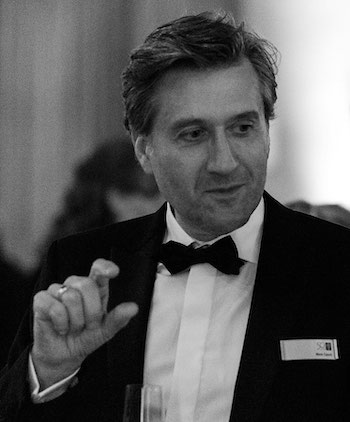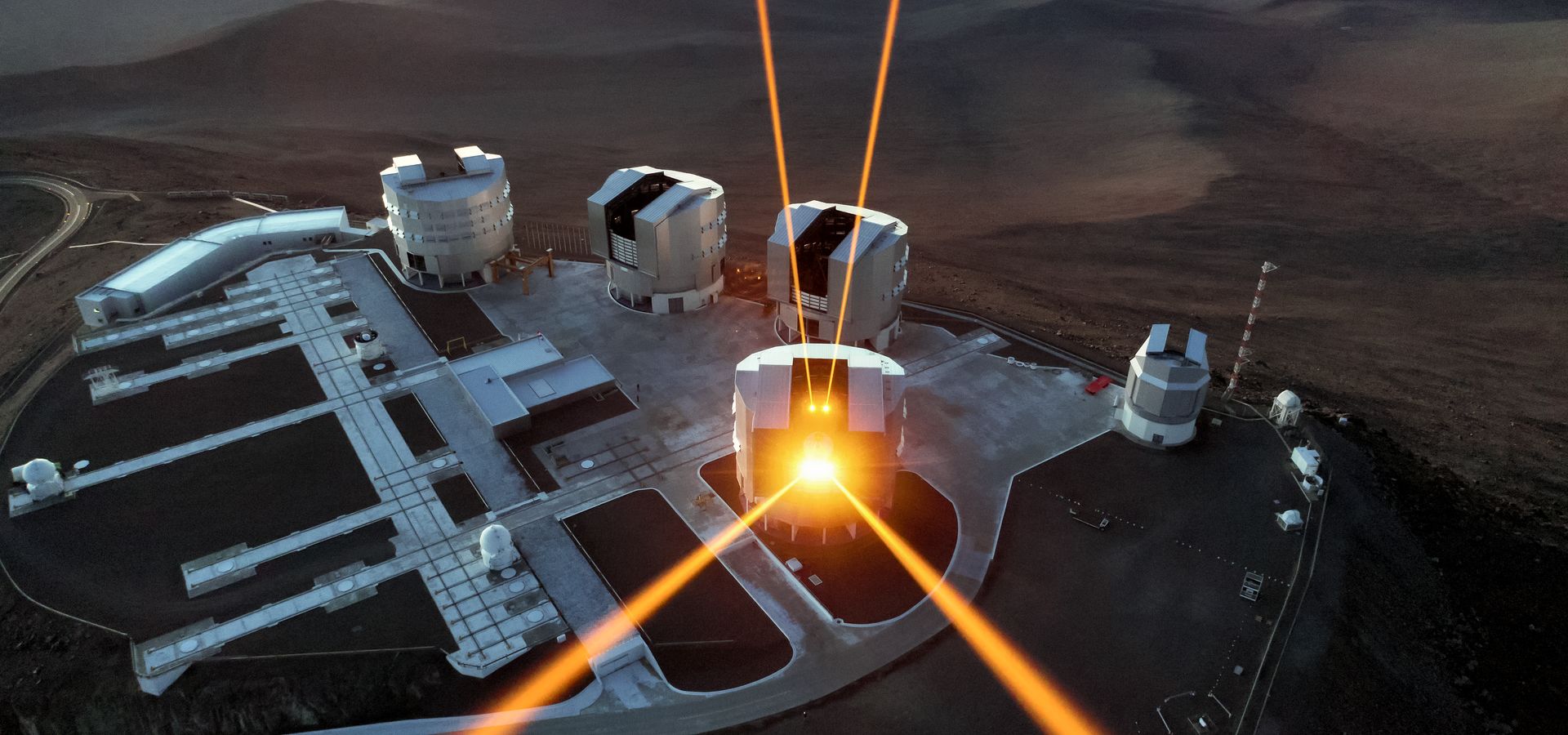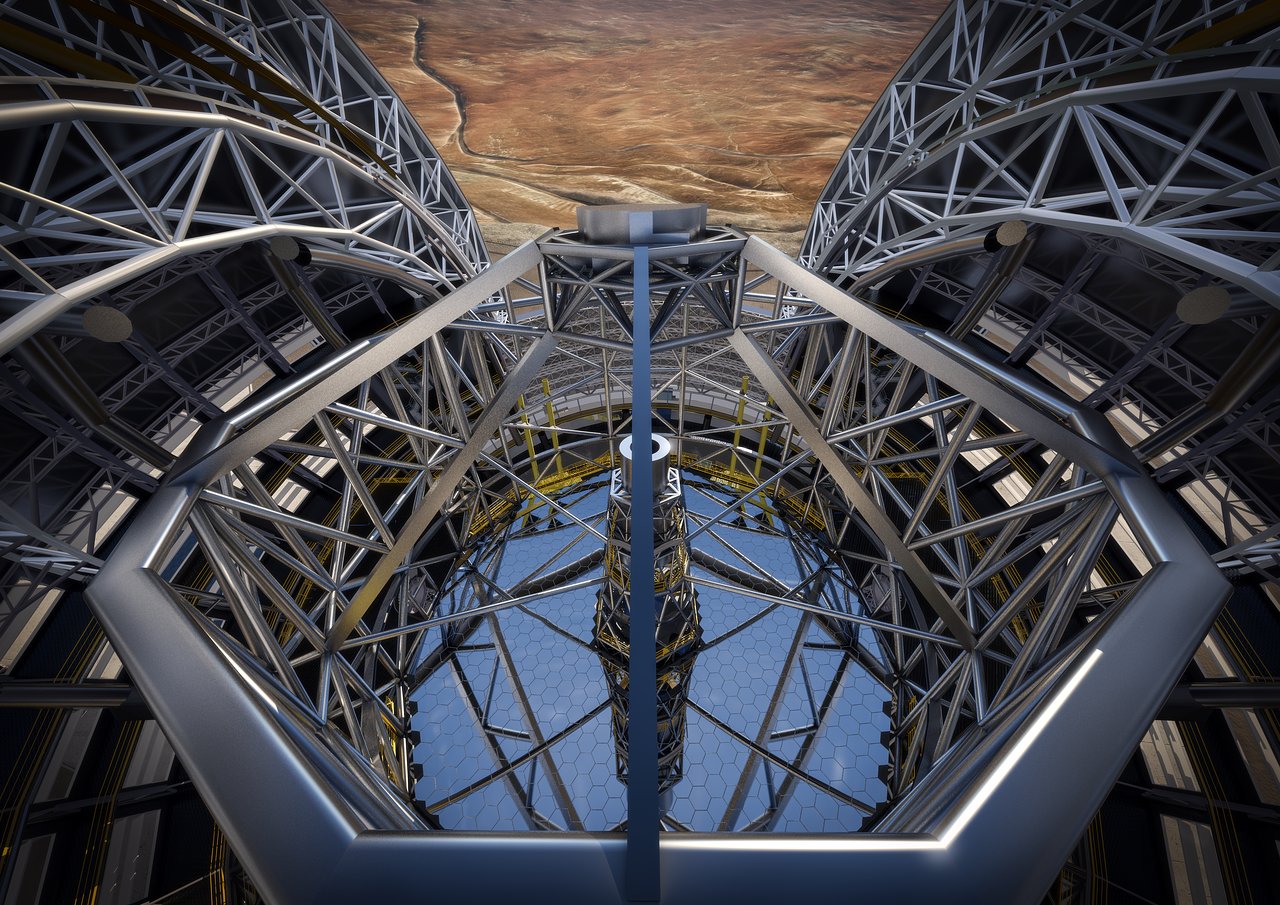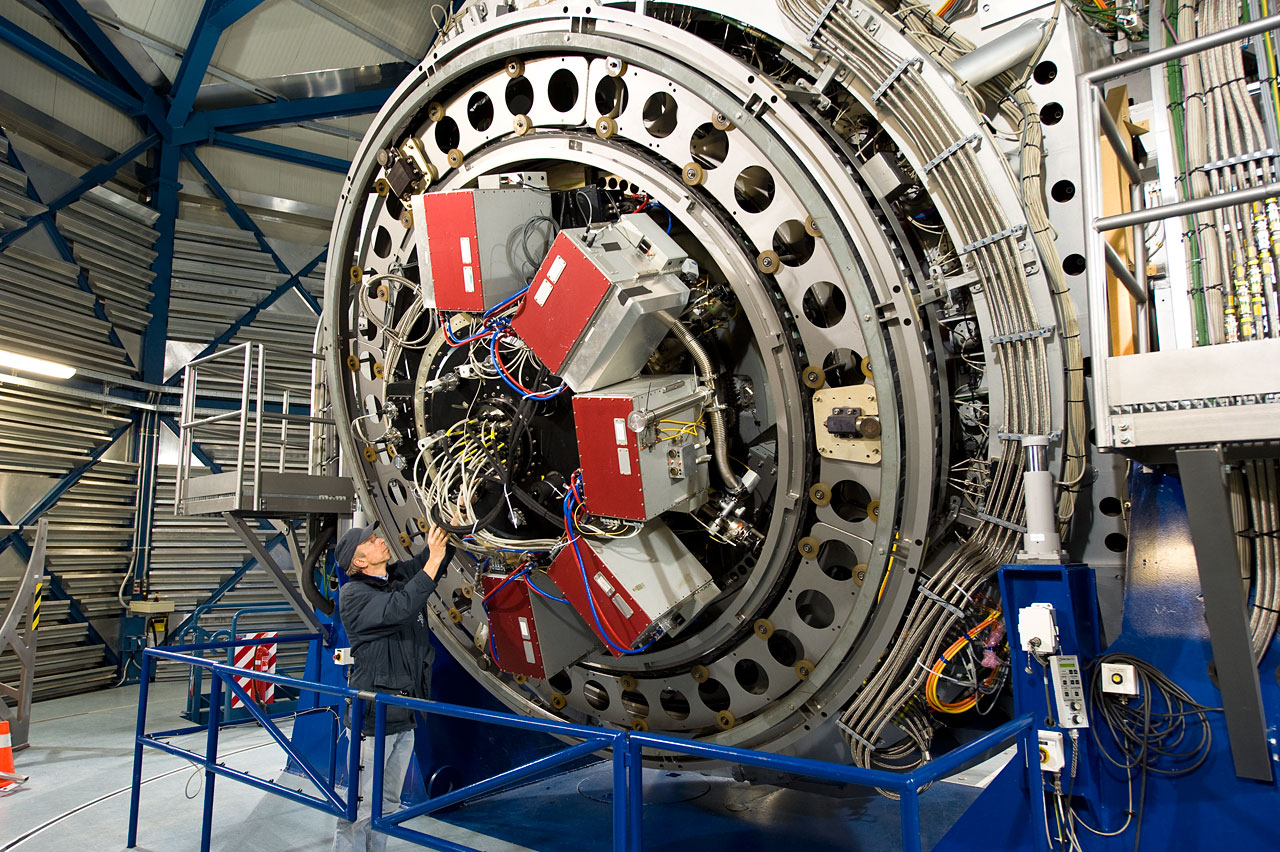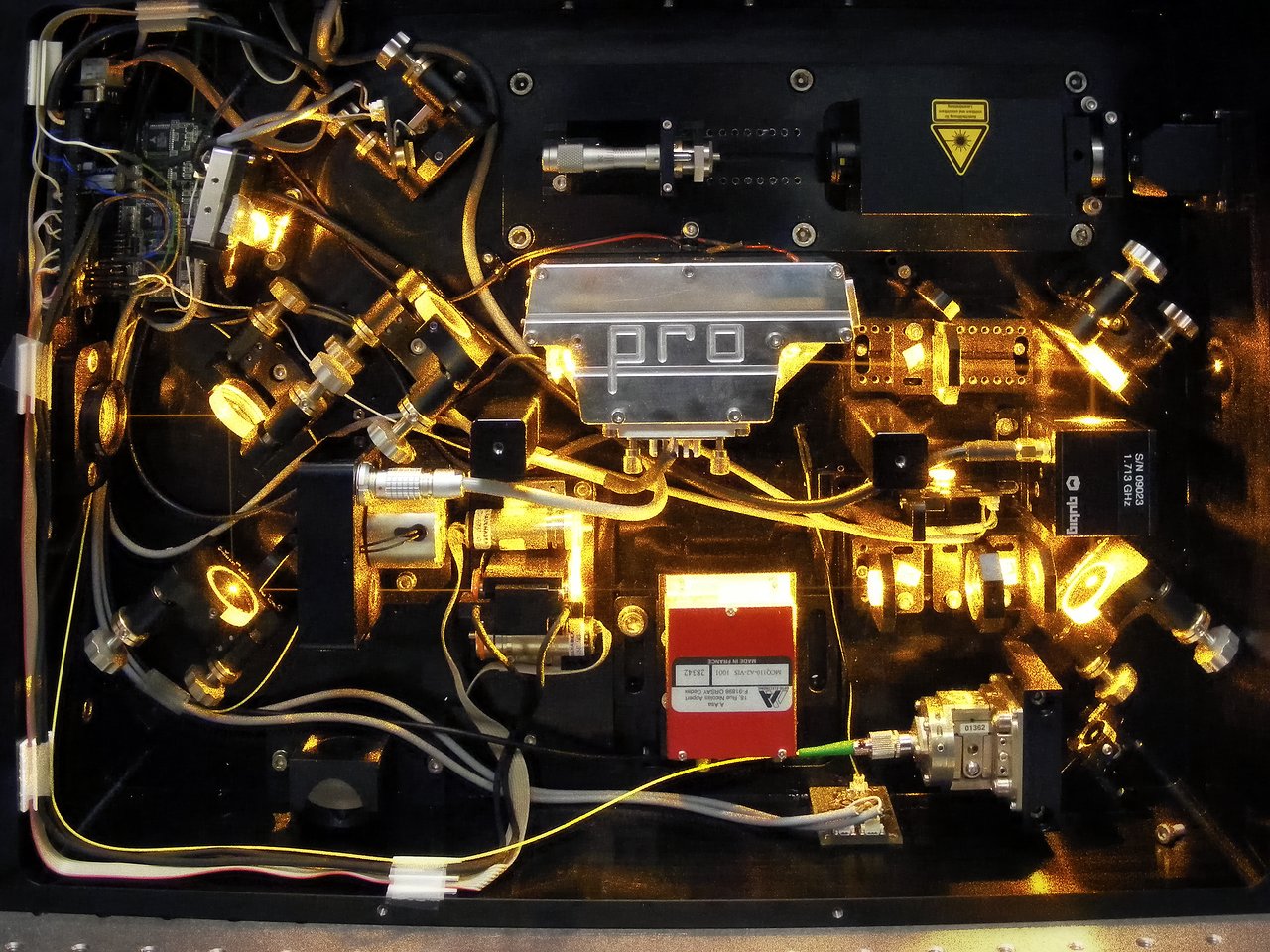- How developing new technology enables ESO to reach its challenging goals
- What it is like to work on technology development at ESO
Q. Firstly, could you tell us about ESO’s Technology Development Programme?
A. We are a team of about a dozen people developing new technology that enables ESO to reach its ambitious scientific goals. This means we work on concepts with a fairly long timeframe — looking into completely innovative techniques and developing technology for astronomical instruments that will exist in the future, rather than those that exist today.
Technology takes a long time to emerge, so we can’t wait to develop it until we want to produce an instrument that does something specific. Rather we need to already have the technology in place before the instrument is developed, in order to speed up production.
One question people often ask is how we decide what new technology to explore. Of course, there are always more brilliant ideas than funds available, but our research is science-driven, meaning that when developing new technology we always focus on things that will eventually enable us to do the most exciting science.
Q. What kind of new technology are you developing at the moment?
A. To avoid wasted efforts, we tend to focus our work into themes, for example detectors or adaptive optics. This means that we solve many problems in a single area so that area can move forward. This is more efficient than investing in several different areas and making only a small amount of progress in each.
Detectors are the key element of any astronomical instrument — they are like the eyes that see the light from the Universe. Many very good detectors exist commercially, but often it’s useful to have detectors with really specific properties. So we put a lot of effort into developing new detectors.
Another current focus area is lasers, which can be used to sharpen images by creating artificial stars, in a technique called adaptive optics. We also develop new mirror technology, for example mirrors that can change shape to create sharper images.
Q. Do you develop all of this new technology here at ESO?
A. We actually only do about half of the technology development in house, and the other half is contracted out to external industry, universities or institutes around Europe. The decision to work on projects internally or externally depends on factors like whether we have the relevant expertise within our small team.
Working with external partners is really a collaboration from which both parties benefit. We gain expertise, as well as a good quality product, because industry usually provides well-engineered products that are reliable and don’t break down easily. Also working with industrial partners gives us access to expensive machinery that we wouldn’t be able to afford ourselves for a single project. On the other hand, we are really looking to develop cutting-edge technology, so when we fund a company to develop something new, they really get ahead of the pack and could be the only company to be producing a certain product commercially. It’s a win-win for all involved!
Working with industrial, academic and institutional partners also allows us to support our Member States, providing them with a return on the money they invest in ESO. Our collaborations with external partners occur through calls to tender and typically last about two years.
Q. And what about the other way around? Does technology developed within ESO ever go on to have commercial success?
A. Occasionally, yes! Although we don’t have a specific department for technology transfer, it does happen organically every now and then.
For example, a couple of years ago we created a special laser called a Raman fibre laser that is used to create an artificial laser guide star by exciting sodium atoms high up in Earth’s atmosphere. We then signed a license agreement with two commercial partners for them to use this novel laser technology.
Q. The Technology Development Programme sounds like an interesting place to work. What experience do you have that made you a good fit to oversee such a department?
A. After a PhD in astronomy and then a stint as a researcher, I got involved in telescope construction projects. I believe that this combination of scientific and technical understanding was really helpful in my role.
I do agree that this is a great team to work in! Not only is it really interesting to bring ideas for revolutionary technology through to actual deliverables, but I also feel that it’s a very important part of ESO’s work. Without new and improved technology, we wouldn’t be able to continue to make new discoveries and remain at the forefront of astronomical research.
Q. Isn’t ESO involved in the European Union’s ATTRACT initiative to develop new technology?
A. ESO is indeed one of the partners in the ATTRACT consortium, which consists mostly of large European infrastructures like CERN and EMBL, as well as universities and some industrial partners. The consortium recently received funding from the European Commission to run a competition for ideas in detector and imaging technology. This could be applied to many different fields, for example detecting light for astronomical or medical applications, or imaging particles for particle physics applications.
We received over 1200 technology development ideas, of which 170 will be awarded 100 000 euros each. After a year and a half of work on their projects, a few of these will receive funding for a scale-up project. Hopefully these will include some astronomy-related projects!
Through ATTRACT, ESO is able to work with other big organisations to develop the European economy, and I believe that the initiative is improving lives by creating products, services, jobs and even new companies.
Q. Is there anything else you’d like to mention?
A. Two things. The first being that the future of technology development at ESO is very bright; it’s likely that our programme will be supported and continue to grow long into the future. The second is that anybody can look at the list of ESO-developed technologies online, which we keep updated so that the public can see where their money goes.
Numbers in this article
|
13 |
Number of people working in ESO’s Technology Development Programme |
|
170 |
Number of projects that will receive ATTRACT funding |
|
1200 |
Number of ideas submitted for ATTRACT funding |
|
100 000 |
Amount in euros to be received by each ATTRACT-funded project |
Biography Mark Casali
After completing a PhD at the University of Melbourne, Mark worked in Hawaii for the UK telescopes on Mauna Kea. He was subsequently an employee at the UK Astronomy Technology Centre in Edinburgh, and then variously head of instrumentation and technology development at ESO. Mark has recently moved on from ESO to become director at the Macquarie University node of the Australian Astronomical University.

